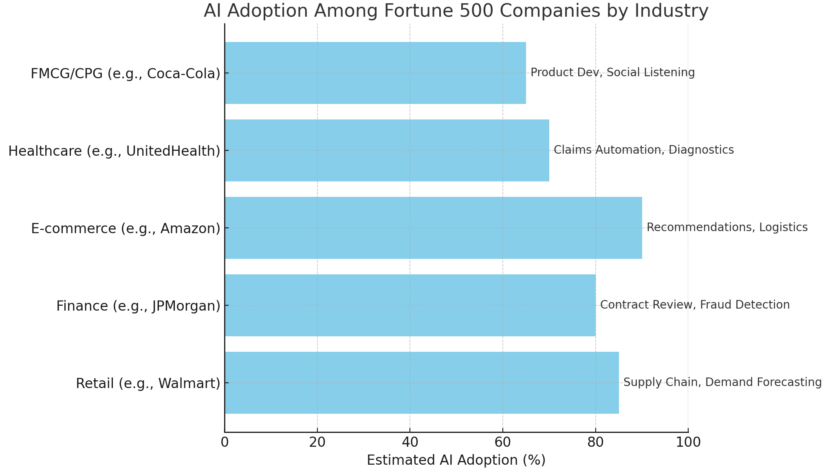Let’s take a look at how Fortune 500 giants are turning AI into real business value:
1. Walmart – Supply Chain Optimization at Scale
Walmart, the world’s largest retailer, uses AI for demand forecasting, route optimization, and inventory management. By applying machine learning models to their logistics data, they can predict product demand more accurately and reduce stockouts. The result? Billions in saved operational costs — and better shelves for customers.
2. JPMorgan Chase – Smarter Contracts and Fraud Detection
In finance, JPMorgan Chase developed an AI system called COiN (Contract Intelligence) to review legal documents. What took 360,000 hours of human work is now done in seconds. At the same time, they use AI to detect anomalous transaction patterns — reducing fraud and improving client trust.
3. Amazon – Personalized Experiences Powered by Data
No surprise here — Amazon is the poster child for AI. Its recommendation engine, powered by deep learning, drives 35% of total sales. On top of that, Amazon uses AI in robotics (for warehouse automation), logistics, and even predictive hiring.
4. UnitedHealth Group – AI in Healthcare Operations
UnitedHealth is deploying AI to automate claims processing, identify gaps in patient care, and flag potential fraud. Their investments in AI are not just about speed, but about outcomes: better diagnostics, better compliance, and better experiences.
5. Coca-Cola – AI for Marketing and Product Development
Coca-Cola uses AI to analyze social media, track customer sentiment, and even develop new flavors. Their cherry Sprite flavor? It came from analyzing customer chatter. This is data-driven product development at work.


